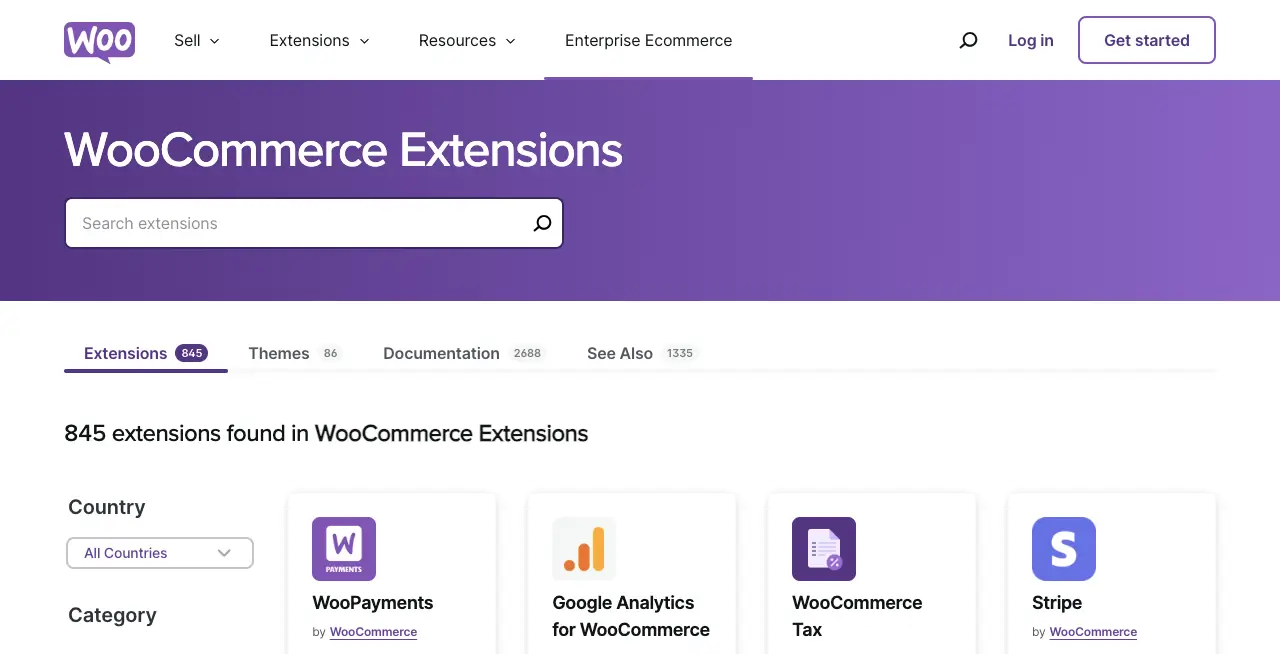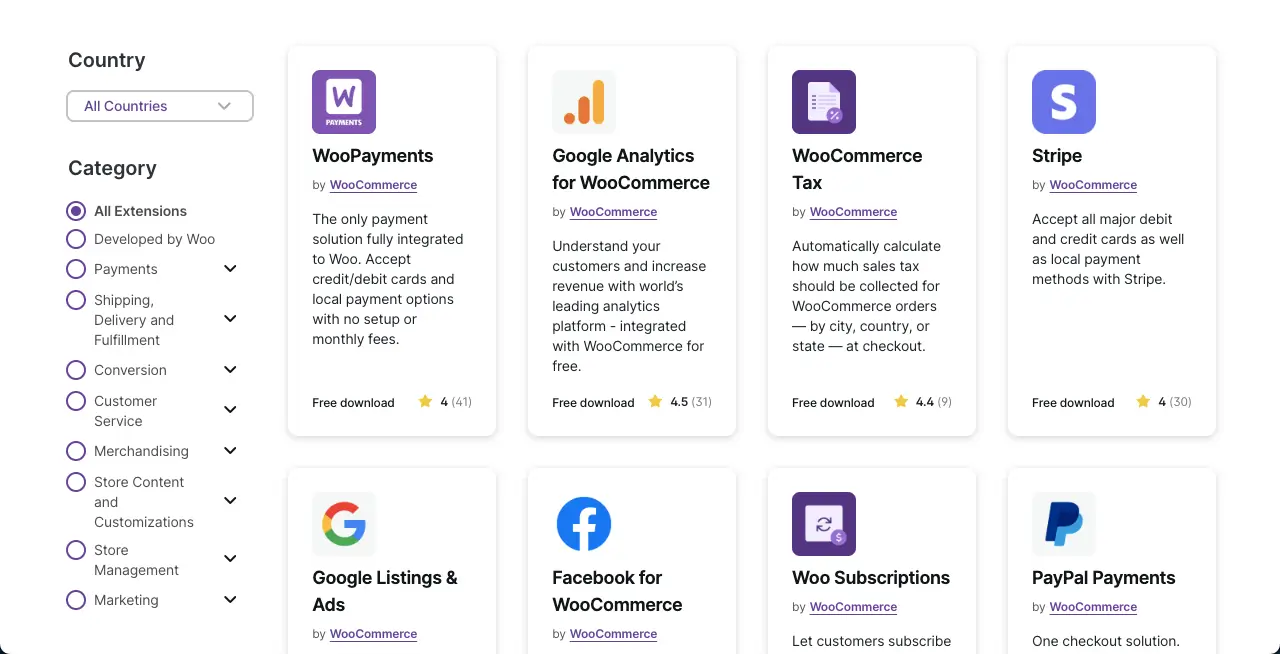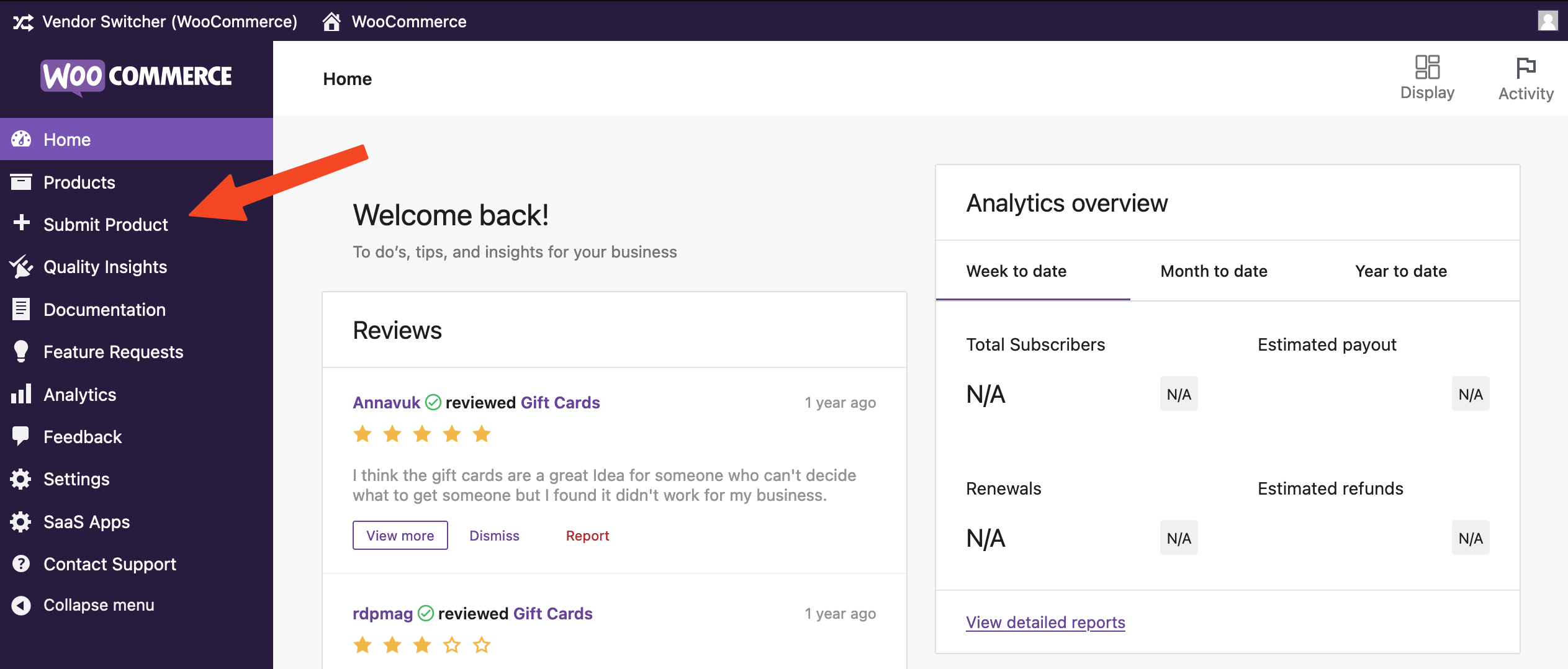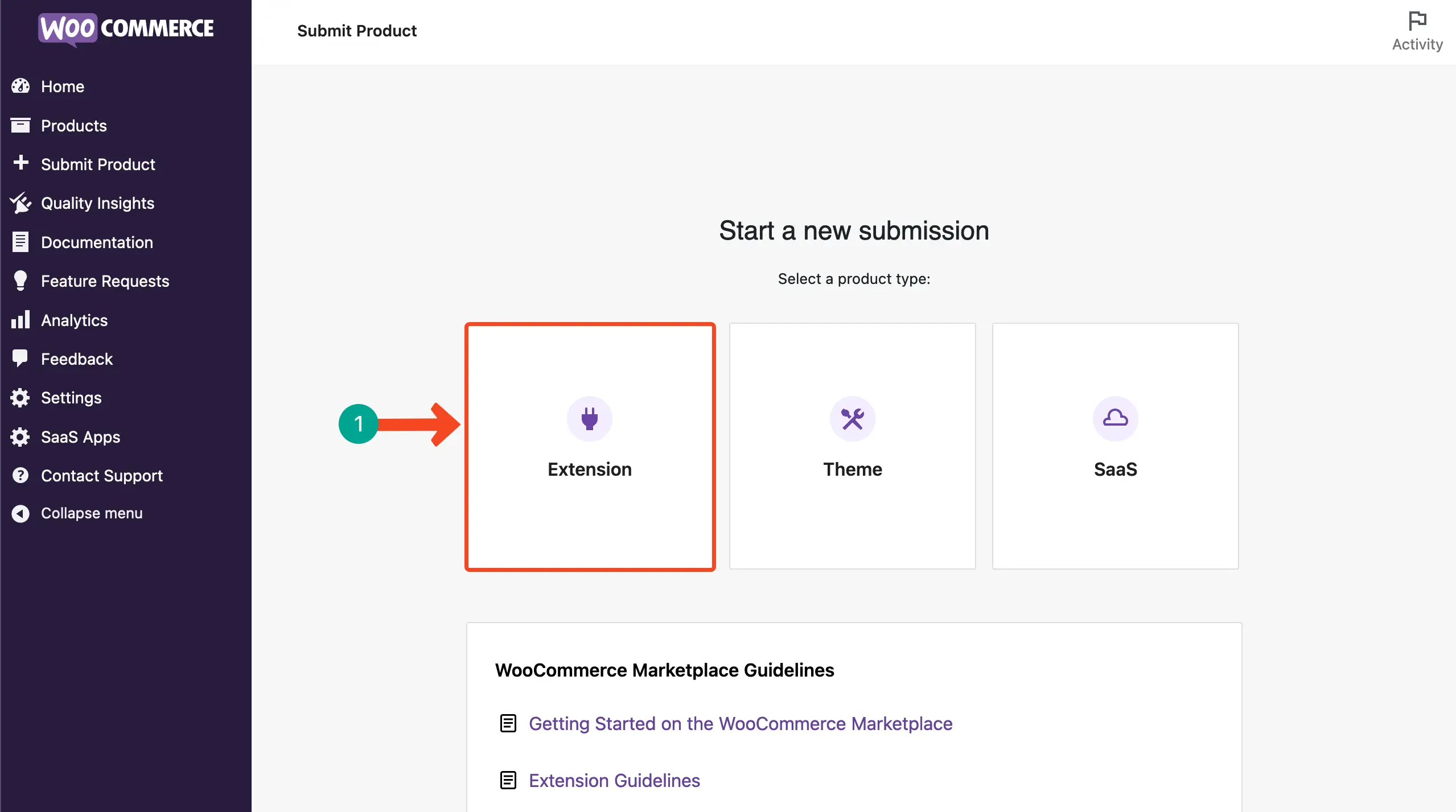
Is WooCommerce Marketplace a Great Platform to Sell WooCommerce Extensions?
As the eCommerce industry is growing, entrepreneurs and sellers are looking for more innovative ways to boost their online presence. WooCommerce has brought about a revolution in this field. It’s a powerful eCommerce build that requires no extensive coding to create complete online shops.
But it’s also true that the increasing demand for sophisticated, customized, and feature-rich websites in the eCommerce industry cannot be met by the WooCommerce plugin. Due to this, the demand for WooCommerce extensions has increased tremendously.
And to leverage this opportunity, many software developers around the world are creating various types of WooCommerce extensions. But where to sell them? Could the WooCommerce Marketplace be a great platform to sell WooCommerce extensions?
In this article, we’ll cover a detailed analysis of the topic, explaining the pros and cons of the marketplace. Let’s begin.
What is the WooCommerce Marketplace Platform?
The WooCommerce marketplace is a trusted Platform that allows developers and software engineers to sell WooCommerce extensions. On every sale, the WooCommerce marketplace authority takes a percentage, after which you can withdraw the rest as your own earnings.
You have to decide how much this percentage will be for yourself by discussing it with the platform authority. This platform was first launched by WordPress co-founders Matt Mullenweg and Mike Jolley in 2011.
The WooCommerce marketplace offers a wide range of extensions and integrations that add features and functionalities to online stores. Till today, the WooCommerce marketplace has 815+ extensions on various categories.
We currently have two extensions in the WooCommerce marketplace. They are CartPulse and Conversion Tracking Pro for WooCommerce.
Why Should You Sell Extensions in the WooCommerce Marketplace?

WooCommerce is one of the leading eCommerce-site builder solutions, powering up over 28% of all online stores. This means 5+ million users are currently using this plugin to build their eCommerce sites. Soon, we may hear that this figure has crossed the threshold of 10+ million installations.
So, can you imagine how demandable the WooCommerce extensions could be? The statistical overview of the WooCommerce marketplace will show you numerous stats proving the demand for WooCommerce extensions among serious eCommerce site owners.
Let’s explore some straightforward benefits of selling WooCommerce extensions in the WooCommerce marketplace.
1. Expanded Visibility
Selling WooCommerce extensions alone will require you to have a good-performing website rich in SEO. Plus, you have to burn money in paid marketing. But these are difficult for small enterprises and sole developers, so you may fail to promote your products successfully.
Listing and selling your extensions in the WooCommerce marketplace can boost your product visibility without extra effort.
2. Access to a Large User Base
Do you know hundreds of thousands of users visit the WooCommerce marketplace per day? By listing and selling your products in the marketplace, you can tap into this large user base and target customers who are already using WooCommerce and looking for extensions.
Learn how to grow your user base with email lists via weMail.
3. Add Credibility and Trust
The WooCommerce marketplace authority checks all the structure and security issues of each extension before allowing it to the platform. So, customers assume that every product on this platform is secured. By selling your extension on this platform, you can leverage this trust and credibility.
4. Marketing and Promotion
Hope we don’t have to speak much on this point. As you are easily getting access to a wider user base by listing and selling your extension in the WooCommerce marketplace, you don’t have to spend much money on paid marketing.
5. Potential for Growing Big
Around 9% of all eCommerce websites in this world are built with WooCommerce. So, you can easily imagine the demand for WooCommerce extensions. The marketplace has many developers who started as small. But after getting a good number of sales in the marketplace, they have expanded their businesses. You may happen with you as well.
Types of Extensions the WooCommerce Marketplace Currently Has

As we said, the WooCommerce marketplace currently has 815+ extensions on its platform. WooCommerce sells them in eight different categories. See the list below of how many extensions the marketplace currently has in each category.
- Payments – 80
- Merchandising – 89
- Store Content and Customizations – 81
- Shipping, Delivery, and Fulfillment – 77
- Marketing – 163
- Conversion – 79
- Customer Service – 21
- Store Management – 122
Not only premium. The WooCommerce marketplace offers you 90 free extensions, 86 themes, and 2688 documentation as well.
How Much the WooCommerce Marketplace Cuts Per Sale
As we said before, you have to discuss the marketplace authority to set a custom commission rate. However, by default, vendors and developers can earn 70% of net revenue for the sale of their non-exclusive products. Non-exclusive means you can sell the same products both from the marketplace and your personal store.
If you have exclusive products, meaning they won’t be sold on any other platform, you may get the privilege of setting a custom commission rate through a discussion with the marketplace authority. However, in any case, you have to ensure the Marketplace Vendor Agreement.
As buyers can claim a refund within 30 days of buying a product, the marketplace clears your commission after 30 days after the product is sold.

Note: From our perspective, the 70% commission isn’t a bad deal. Months/years ago, the WooCommerce marketplace would keep 60% of earnings per sale. They reduced it to 40%. They reduced it even more afterward which is now 30%.
Challenges of Selling Extensions in the WooCommerce Marketplace Platform
Like almost everything in the world, along with the benefits, the WooCommerce marketplace has several limitations. In this section, we will highlight those limitations. Keep reading it.
1. Competiton
The WooCommerce marketplace uses its own algorithm to promote its extensions. Although they promote new extensions well up to a certain point, after a while they bypass them and give space to further newer plugins. This means you are supposed to face a competition after a certain period.
So don’t depend only on this marketplace. You should also have your own website from where you regularly upload SEO-friendly posts about your extensions. This can help you create an impression and make an alternative way to sell your products.
2. Hard to Track Customer Data
Customers’ data is so crucial in marketing and promoting a product. But it’s upsetting that you won’t find a flexible way to track impressions and clicks on your product on the WooCommerce marketplace platform. You’ll get notifications only when people buy your extensions.
But the more upsetting point is that, even though someone buys your extension, you won’t know who he/she is. You won’t have any contact information for them. As a result, you can’t communicate with them well and fix issues if they ever face anything.
3. Doesn’t Allow Adding License

While you can add and manage license keys and activations of your product via your online store, you can’t do it through the WooCommerce marketplace. You’ll never know how many users have stopped using your products and how many users to target for resubscription in the next period.
As a result, some people suggest maintaining two versions of the same extension. One is to be sold on your own website, while the other version needs to be modified by removing the licensing engine so that it can be listed on WooCommerce.
But stripping these features from your extension can be harmful to your product because it removes some of the protection that the licensing engine provides to your code. In other words, it can make your code more vulnerable to unauthorized use or piracy.
4. Branding and Marketing
Branding and marketing extensions in the WooCommerce Marketplace can be challenging for several reasons. WooCommerce keeps customer information separate from developers unless they create their own solution. This means that building a strong brand and marketing directly to customers can be more difficult as developers may not have direct access to customer data.
Additionally, the complexity of licensing poses another challenge. Maintaining two versions of the extension could be problematic for branding and marketing efforts because it removes some protection from the code. This can impact the ability to build a strong brand and market directly to customers.
5. Tough to Exit from the Marketplace
You can think that since you are new, you will sell products in this marketplace for a few days, and after making a good amount of money, you will grow from here. But that is not possible. Whether your product sells one or a hundred, you are responsible for providing customer support and maintaining their products.
This includes addressing customer inquiries, fixing bugs, and releasing updates to ensure compatibility with the latest versions of WooCommerce. As a result, whether or not you get detailed customer data, branding, or marketing-related help, you have to go with support. As the licensing is difficult, you won’t even know if your users are active.
How to Sell Extensions in the WooCommerce Marketplace
You have to go through several steps to sell your extensions on WooCommerce Marketplace. And this process should not start after your extension is developed but earlier. This marketplace authority has enough information about what type of extension customers want.
So they don’t allow any extension you have. Take a look at the steps below you must follow to sell your WooCommerce extensions in the WooCommerce marketplace.

Step 01: Know Your Future Customers
To successfully sell extensions in the WooCommerce Plugin Marketplace, it is crucial to understand your future customers. According to WooCommerce, about 67% of customers buy extensions for their own stores, while the remaining 33% develop sites on behalf of store owners.
This means both the common people and developers could be your target customers. They look for extensions to facilitate stores in these industries: Fashion and Apparel, Health and Beauty, Education, Food and Drink, and Home and Garden.
While 70% sell physical products, 24% of stores that sell physical products also offer other types of products like digital goods, services, memberships, or tickets. Accordingly, you must develop your products.
Step 02: Know the Products that the WooCommerce Marketplace is Looking
As already said the WooCommerce marketplace platform doesn’t allow you to host and sell any type of extension but the selected ones only. So, how do you select your extension? It’s better if you know what type of extensions they are really looking for. Below are several key takeaways from the point.
- Focus on proven, best-in-class extensions with a positive customer base and feedback
- Popular extension categories are AI assistance, analytics, reporting, and B2B/B2C product sourcing
- Be original and committed to open-source principles; do not submit forked products.
Step 03: Complete Marketplace Vendor Agreement
All vendors wanting to list and sell their extensions on the WooCommerce marketplace platform must agree to the Marketplace Vendor Agreement. This agreement outlines the terms and conditions for selling on the marketplace.
They are expected to maintain and update their products to keep up with WordPress and WooCommerce developments. They should also provide support for their products. They are also responsible for managing their own product pages, partner pages, and documentation on WooCommerce.com.
Step 04: Start Submitting an Extension
Once the previous steps are done and your extension is ready, you can start submitting them now. You have to create a vendor account first.
Once your account is created, log in.
Then, go to the Submit Product option from the dashboard.

Select the Extension option to upload extensions in the marketplace.
But you can choose the Theme option to upload themes to the marketplace as well.

The WooCommerce marketplace will ask for your detailed product information. Complete this step yourself. You might be asked to provide the following information:
- Key features and benefits of the extension
- Pricing model of the extension
- How it compares to similar products
- Special integration it offers
Step 05: Let the WooCommerce Authority Review It
Once the uploading is done, the WooCommerce marketplace authority will take several days to review the product. If they find the extension meets all the requirements they set in advance, they will surely approve the extension in the marketplace. The entire review usually takes one to two weeks.
How to Sell WooCommerce Extensions Without the WooCommerce Marketplace
There are two ways you can promote and sell your WooCommerce extensions without the WooCommerce marketplace. They are:
- On-site promotional method
- Off-site promotional method
Take a quick look at what you have to do with these two methods.

On-site Promotional Method to Promote and Sell Your WooCommerce Extension
The on-site promotional approach involves carrying out the marketing approaches from the extension developer’s respective website. You can execute the method in the following ways:
Launch a dedicated website: Create a dedicated website to host the information of your extension. This can help improve the credibility and brand value of your product.
Create helpful content: Publish helpful blog posts, articles, documentation, and video content about your product in an SEO-friendly way so people get engaged with it.
Initiate the affiliate marketing program: Allow others to promote your products in exchange for an affiliate commission per sale or revenue amount.
Send newsletter and run email marketing: Create email lists of interested users through forms, popups, opt-ins, and other ways. This can help you send newsletters and run email marketing.
Be visible on social media: Create social profiles with the name of your product and regularly share your content there so you can create an impression about your extension among new users.
Off-site Promotional Method to Promote and Sell Your WooCommerce Extension
The off-site promotional method involves activities carried out outside the main dedicated website. The following off-site approaches can be helpful for you:
Write guest posts: If you can make a way to publish your posts on high authority sites, chances are that you’ll receive a good amount of traffic through the post to your product page.
Get reviewed by industry experts: Reviews from industry experts can create a sense of credibility. You can reach out to industry experts and social influencers to review your extensions.
Manage quality backlinks: Backlinks from quality websites can improve your domain authority and make your site more visible on search engine result pages.
Learn in detail how to promote your WordPress plugins and extensions for more sales.
Use the Appsero Licensing System to Sell and Manage Your WooCommerce Plugins

The biggest advantage of selling plugins and extensions outside of the marketplace is that you can pocket the entire revenue that comes from the sales. You don’t have to pay commission or share the revenue with others.
But when you want to do business by selling premium extensions and plugins, you must license your product. Otherwise, scammers will steal your product, and all your hard work will be in vain. Appsero is a wonderful licensing management system for WooCommerce plugins.
What is Appsero?
Appsero is a comprehensive platform designed for WordPress plugin and theme developers. It provides a range of tools and features to simplify the development process, including analytics, licensing, updates, and deployment.
With Appsero, developers can efficiently manage their products, analyze user data, track performance metrics, and seamlessly deploy updates, ultimately saving time and enhancing the overall development workflow.
Appsero licensing system enables developers to protect their intellectual property and monetize their creations effectively. It offers seamless integration with popular tools like GitHub and Bitbucket, making it easier to manage code repositories and automate deployment processes.
With its comprehensive set of features, Appsero empowers developers to create, manage, and market their WordPress products more efficiently and effectively.
Best Alternative Marketplaces to Sell WooCommerce Extensions
It’s not a good idea to list your extensions plugins only on one marketplace and depend solely on it for your revenue generation. You must try to upload and list your extensions in multiple marketplace platforms so can shoot up impressions, clicks, and sales rates simultaneously.
Below we have presented a list of several best alternatives to the WooCommerce marketplace.

1. CodeCanyon
CodeCanyon is a popular online marketplace where developers can sell their digital products, including plugins, scripts, and extensions. It provides you with access to a vast audience of potential buyers, a secure and trusted payment system, and exposure to a community of developers and customers who can provide feedback and support you to earn a passive income through recurring sales.
2. AppSumo
AppSumo is another credible marketplace to sell digital products. This platform is trusted by hundreds of thousands of users. By partnering with AppSumo, you can benefit from the platform’s marketing expertise, which includes promoting products through email campaigns, social media, and other channels they run.
3. Codester
Codester is a thriving online marketplace that provides a platform for developers and designers to buy and sell digital products, including themes, plugins, scripts, and graphics. It offers a range of categories and features, making it an attractive marketplace for both buyers and sellers.
FAQ – Is WooCommerce Marketplace a Great Platform to Sell WooCommerce Extensions?
Although there are many more marketplaces, the above ones stay on top of them in terms of reliability, transparency, and credibility. Let’s now take a look at answers to some common questions people usually ask on the topic.
What percent of commission does the WooCommerce marketplace cut per sale of my themes and extensions?
The WooCommerce marketplace currently charges 30% per sale.
After how many days does the WooCommerce marketplace clear your earnings from theme and extensions selling?
The WooCommerce marketplace clears your earnings after 30 days of selling your themes and extensions.
How many category extensions does the WooCommerce marketplace currently sell?
The WooCommerce marketplace currently sales 8 category extensions. They are
1. Payments
2. Merchandising
3. Store Content and Customizations
4. Shipping, Delivery, and Fulfillment
5. Marketing
6. Conversion
7. Customer Service
8. Store Management
What are the best alternatives to the WooCommerce marketplace?
1. CodeCanyon
2. Appsumo
3. Codester
What is a WooCommerce extension?
A WooCommerce extension is a digital product that can be added to a WooCommerce-powered website to enhance its functionality and provide additional features. These extensions can include plugins, scripts, themes, and graphics that are designed to integrate seamlessly with WooCommerce and extend its capabilities.
Final Notes!
The WooCommerce Marketplace can be a great platform to sell WooCommerce extensions, thanks to its wide user base, trusted reputation, and seamless integration with the WooCommerce ecosystem. In this blog post, we have tried to cover in detail everything about this marketplace.
In the end, we introduced you to several other marketplaces that you can leverage to promote and sell your products. If you are a plugin developer, especially a WooCommerce extension developer, we believe this post will help you a lot.
Finally, suppose you are planning to sell your products outside the marketplace via your own tactics and philosophy. In that case, you can use the Appsero licensing system to manage your products with detailed analytical insights.
If there is any question in your mind left unanswered, we request you to let us know through the comment box.
Subscribe To Our Newsletter
Don’t miss any updates of our new templates and extensions
and all the astonishing offers we bring for you.




